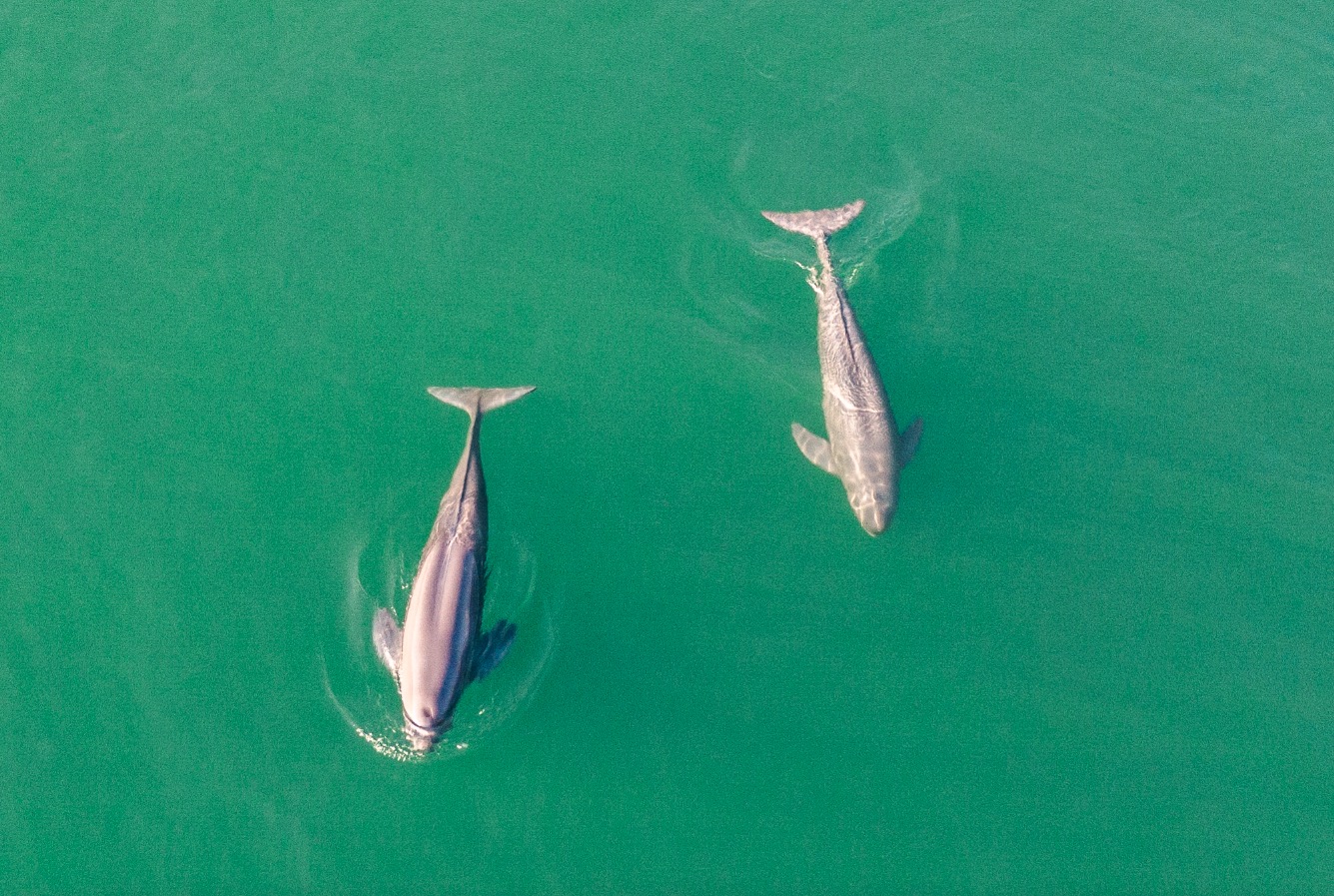Endangered Yangtze Species Smiling after Green Measure Success

Two Yangtze finless porpoises swim in the Yangtze River. (PHOTO: VCG)
By ZHONG Jianli and JIN Feng
The Yangtze finless porpoise, known as the "smiling angel" in China, is a species of toothed whale endemic to the Yangtze River. It is also one of the world's most rare freshwater cetacean species.
In the past years, due to illegal fishing, pollution, and vessel traffic, the number of Yangtze finless porpoises declined rapidly. In 2017, after a 52-day Yangtze finless porpoise ecological investigation, the Ministry of Agriculture and Rural Affairs announced that the number of Yangtze finless porpoises was estimated to be only 1,012, of which about 445 were in the main stream of the river.
To save the species from extinction, the Chinese government adopted a series of measures. Many of the recent efforts include the following:
In January 2021, a 10-year fishing ban was implemented in key waters of the Yangtze River.
In February 2021, China elevated the Yangtze finless porpoise to national first-level protected species, the highest level in the List of National Key Protected Wildlife.
On March 1, 2021, the country's first river protection law, the Yangtze River Protection Law, came into effect.
A year later, the ecological environment of the Yangtze River has undergone great changes, and more finless porpoises have been captured.
"The underwater noise in the near-shore area of the Yangtze River has been reduced, because disorderly riverside ports have been renovated or closed down, and some places have even been restored to more hospitable environments. Finless porpoises can currently use these nearshore waters to inhabit," said Wang Kexiong, a researcher at the Institute of Hydrobiology, Chinese Academy of Sciences, whose research team has often carried out scientific research on the Yangtze River's ecology.
Wang added that now finless porpoises can follow fish over a wider area. Where there are fish, the finless porpoises can now prey freely.
Establishing in-situ nature reserves is another effort being made by China to protect endangered species.
In recent years, the country has set up eight in-situ nature reserves, three ex-situ nature reserves and one semi-natural ex-situ site along the Yangtze River, helping the habitat of the Yangtze finless porpoise improve immeasurably.
To further protect the species, Wang noted that it is necessary to invest more technology and resources to monitor the underwater living environment and activities of the species.
"The current monitoring system mainly relies on imaging equipment, which is usually used to monitor human activities on the water, but cannot directly monitor underwater activities of finless porpoises," said Wang, adding that although some nature reserves have carried out real-time underwater acoustic monitoring and early warning of finless porpoises, the number of monitoring points still needs to be increased.







